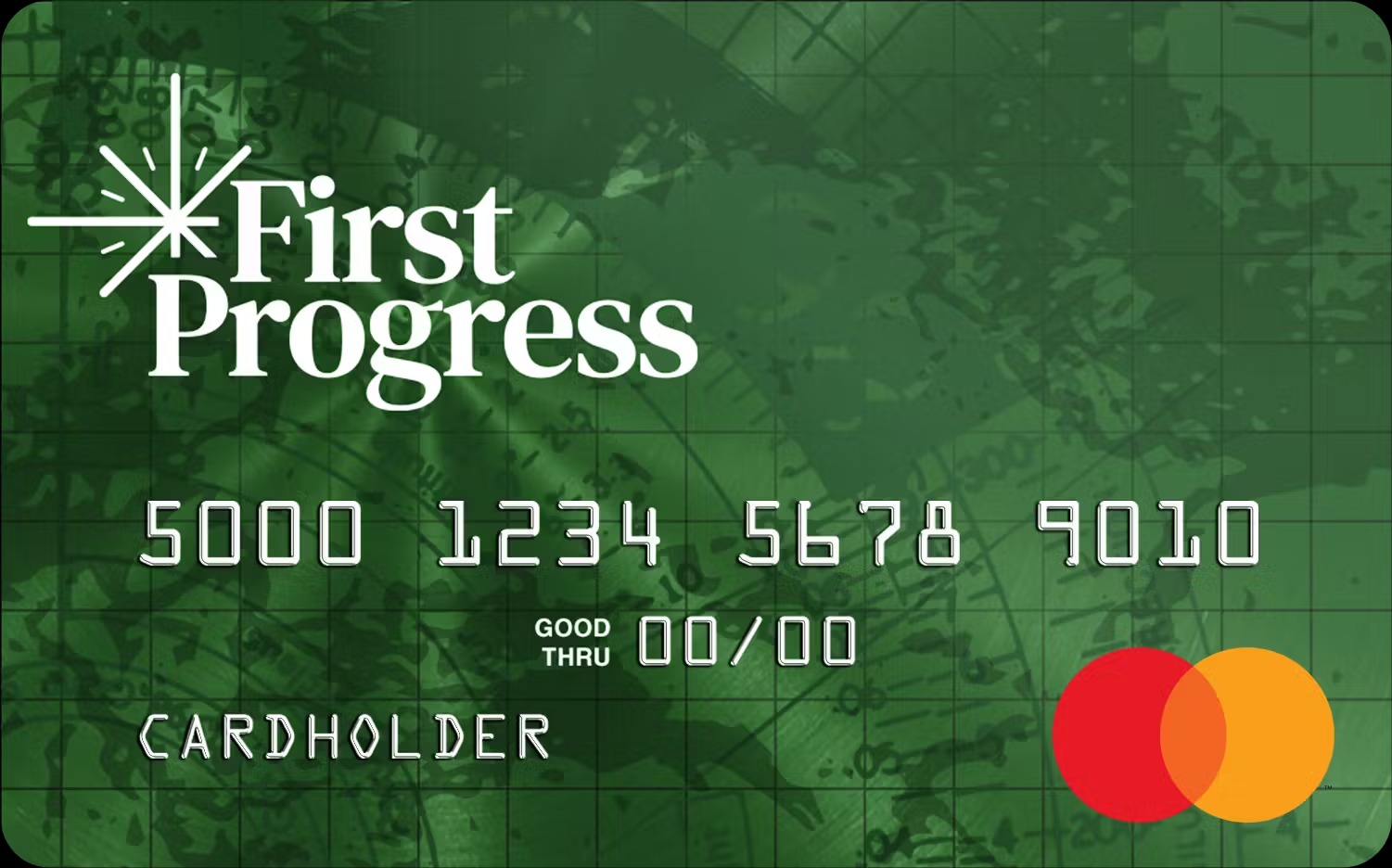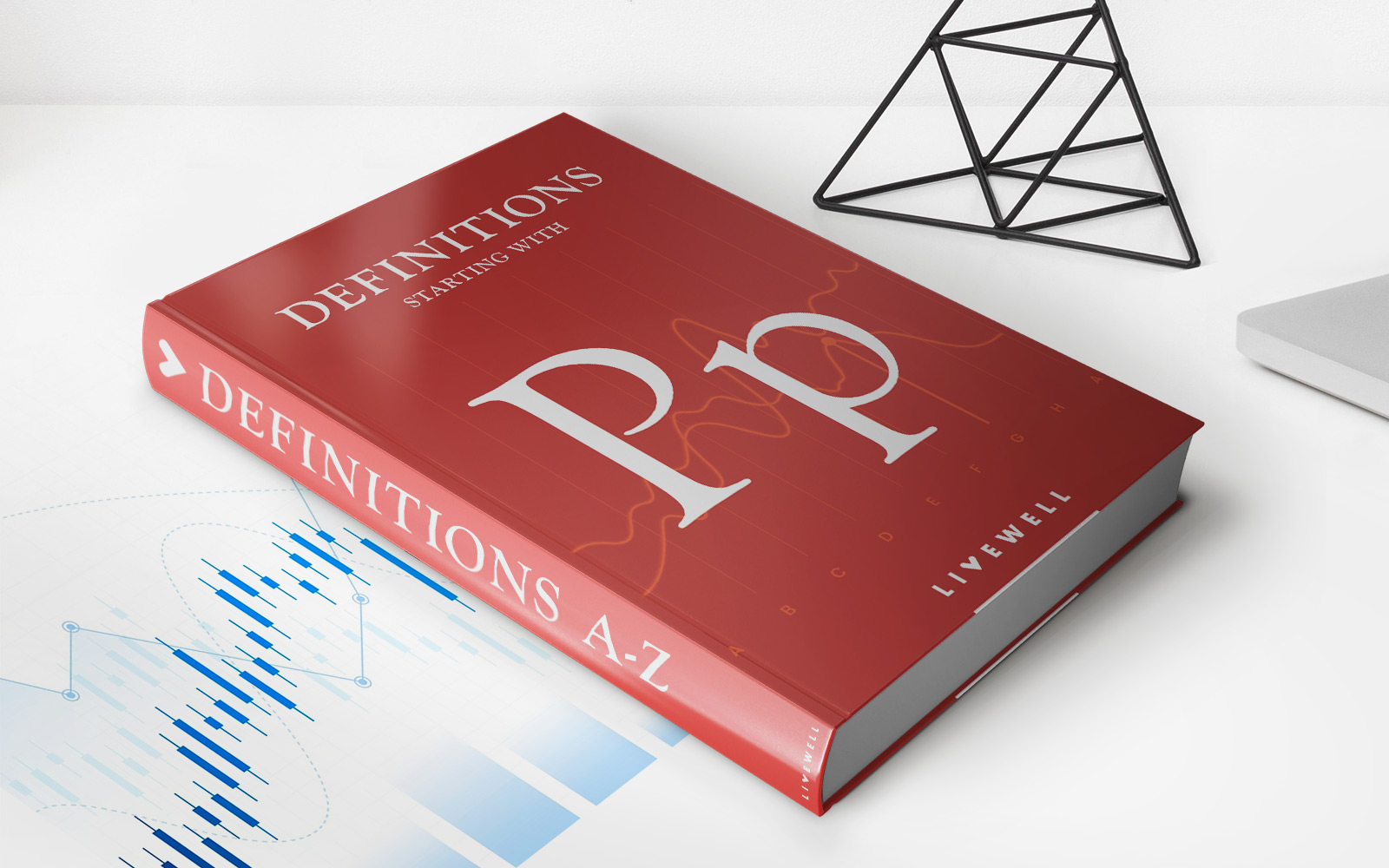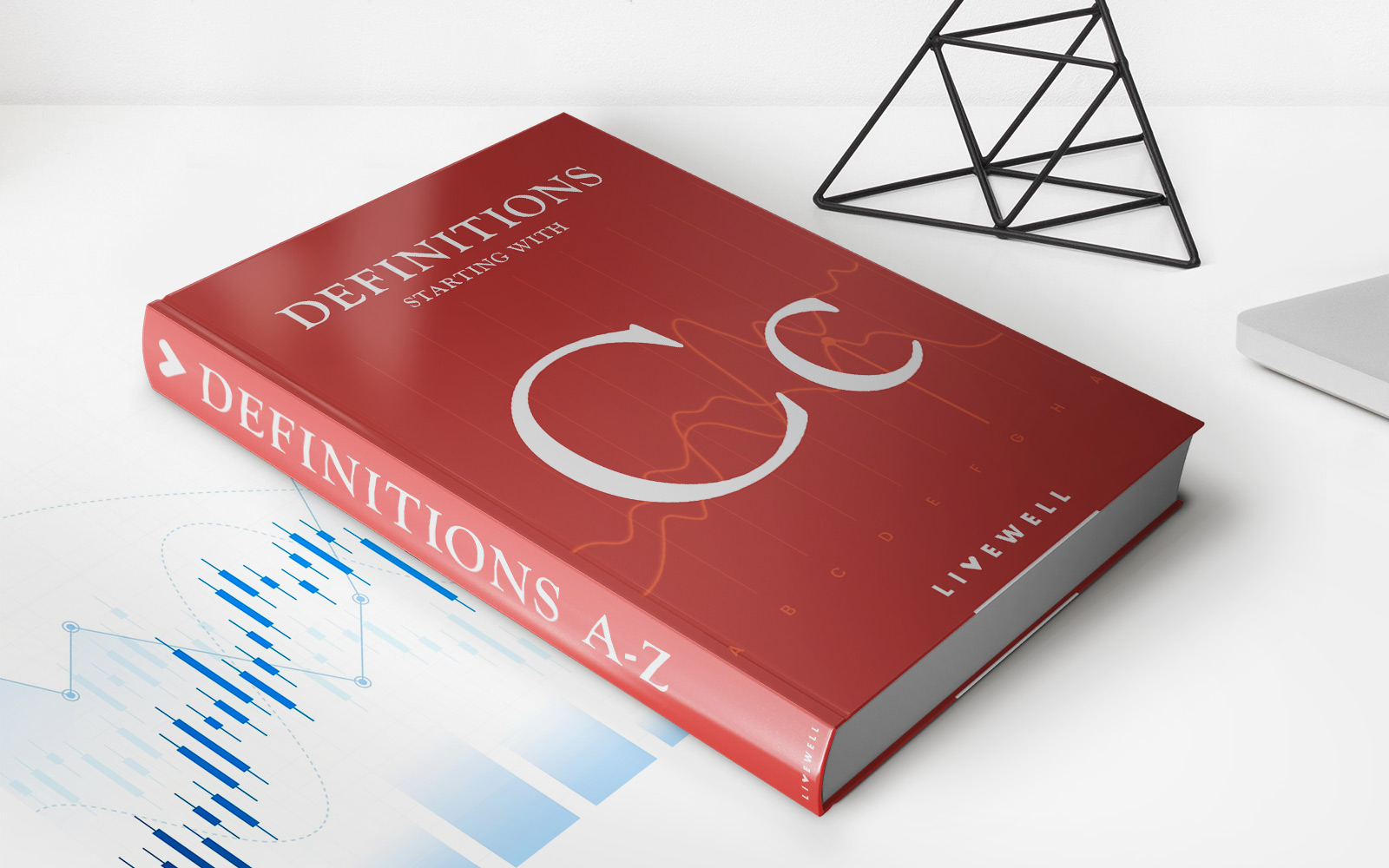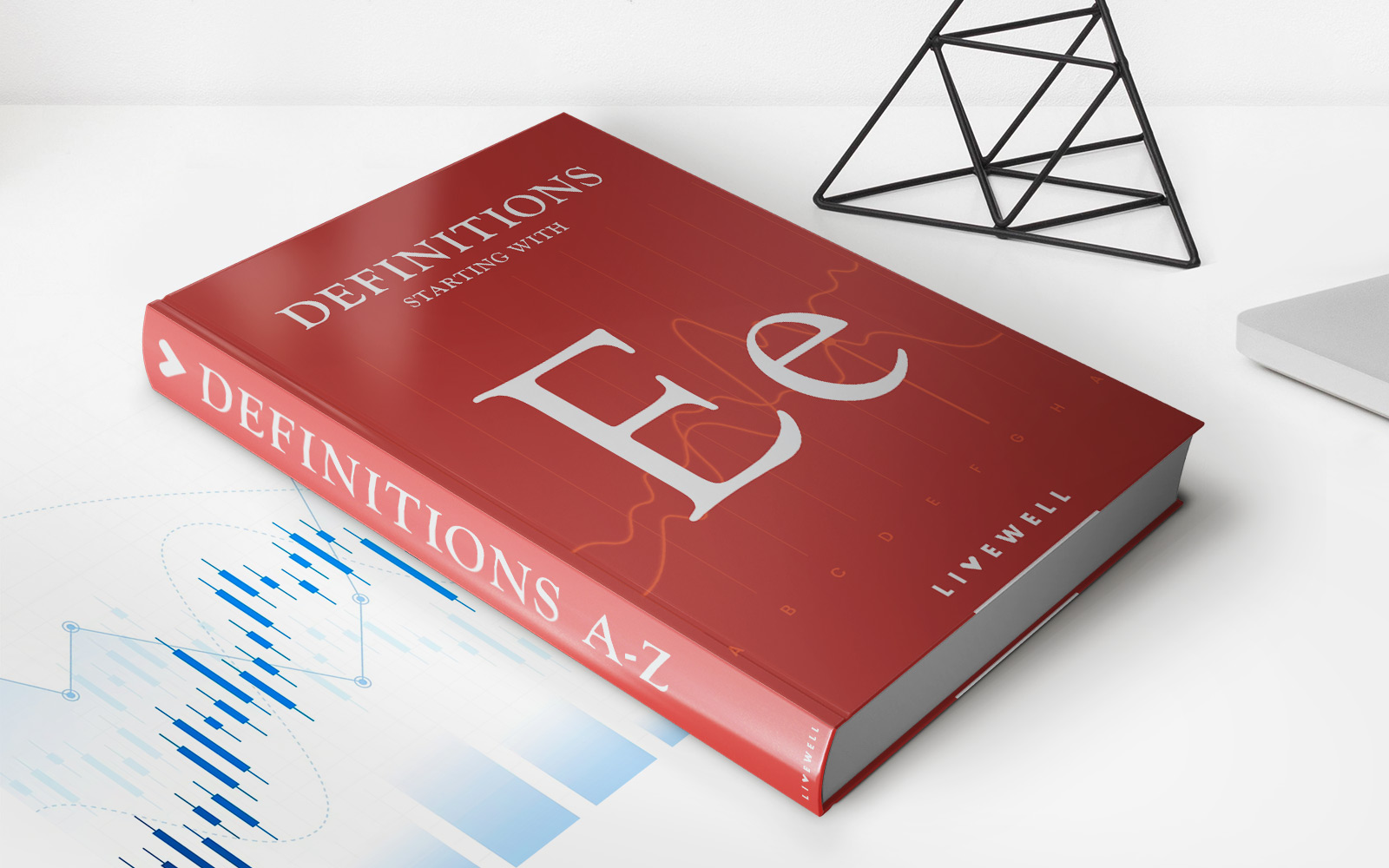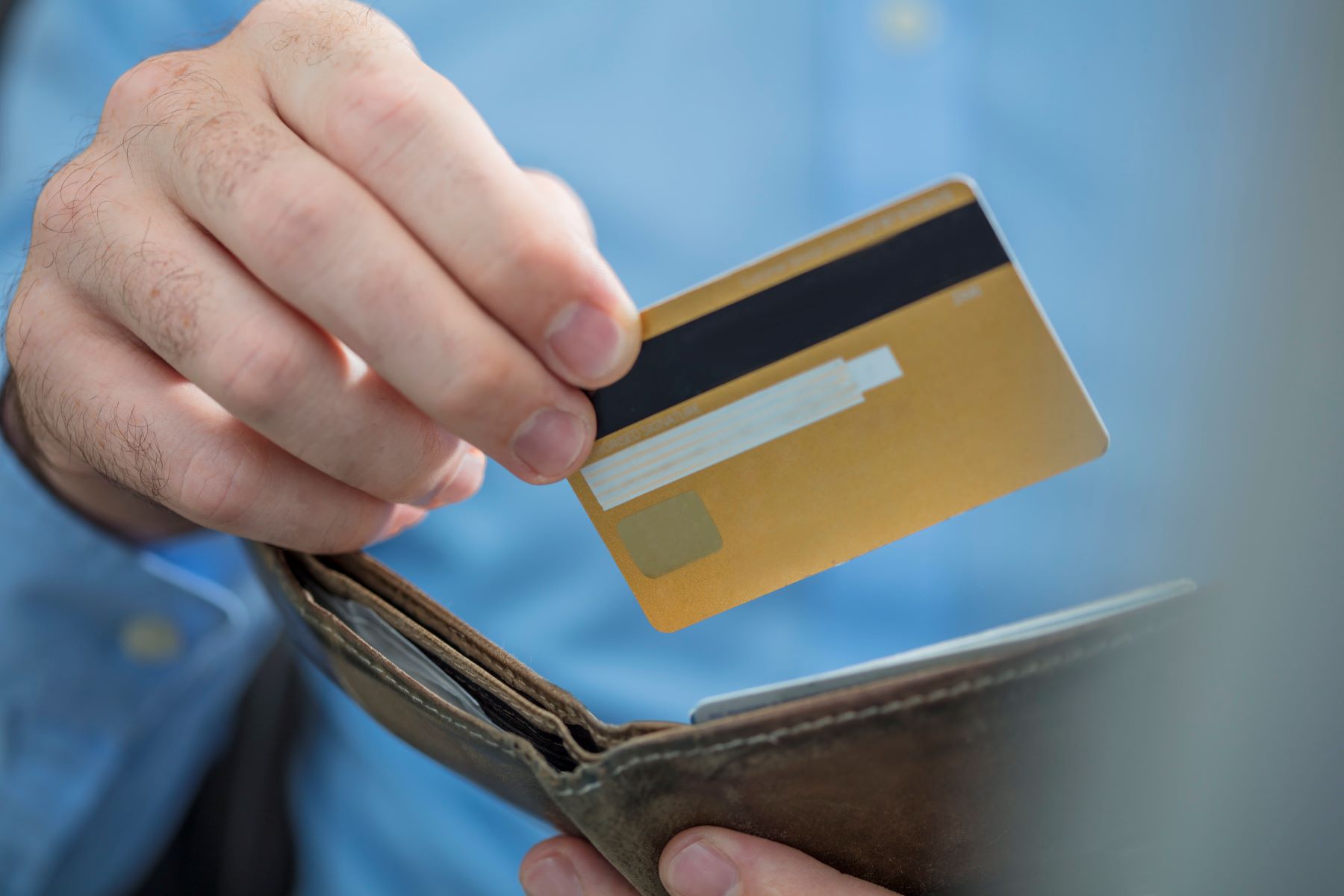

Finance
What To Buy With Credit Card To Build Credit
Published: October 24, 2023
Looking to build credit? Learn what you can purchase using a credit card in the finance industry to establish a positive credit history.
(Many of the links in this article redirect to a specific reviewed product. Your purchase of these products through affiliate links helps to generate commission for LiveWell, at no extra cost. Learn more)
Table of Contents
- Introduction
- Understanding Credit Building with Credit Cards
- Factors Affecting Credit Building
- What to Consider Before Making Purchases
- Items That Can Help Build Credit
- Small Daily Expenses
- Monthly Bills
- Subscription Services
- Groceries and Household Items
- Gasoline and Transportation
- Online Shopping
- Travel and Accommodation
- Education and Professional Development
- Charity and Donations
- Healthcare Expenses
- How to Maximize Credit Building Potential
- Conclusion
Introduction
Building credit is an essential step towards financial stability and achieving important milestones like purchasing a home or securing a loan. One effective strategy for building credit is using a credit card responsibly. By making timely payments and maintaining a low credit utilization ratio, you can demonstrate your creditworthiness to lenders.
However, knowing what to buy with your credit card to build credit can be a bit confusing. It’s important to make informed decisions and choose purchases that will have a positive impact on your credit history. In this article, we will explore various items and expenses that can help you build credit effectively.
Before we dive into the specific purchases, it’s crucial to understand the key factors that influence credit building with credit cards. Your credit utilization ratio, payment history, length of credit history, and credit mix all play a significant role in determining your credit score. Keeping these factors in mind will guide you in making the right choices.
While credit cards offer the convenience of making purchases without cash, they also come with responsibility. It’s essential to consider a few factors before making any purchases. First, ensure that you can afford to pay off your credit card balance in full each month to avoid accruing interest charges. Second, review the terms and conditions of your credit card to familiarize yourself with any fees, rewards programs, or special offers that can enhance your credit-building journey.
Now that we have covered the important considerations, let’s explore the items and expenses that can help you effectively build credit with your credit card. Remember, it’s crucial to use your credit card responsibly and prioritize purchases that align with your financial goals.
Understanding Credit Building with Credit Cards
Credit cards can be powerful tools for building credit, but it’s important to understand how they work in relation to credit building. When you make purchases with your credit card, the activity is reported to credit bureaus, which compile your credit history. This history is then used to calculate your credit score, a numerical representation of your creditworthiness.
One of the key factors influencing credit building is your credit utilization ratio, which is the amount of credit you’re using compared to your total available credit. Keeping your credit utilization ratio low, ideally below 30%, demonstrates to lenders that you can manage credit responsibly. Using credit cards sparingly and keeping balances low can help improve this ratio.
Another crucial factor is your payment history. Making on-time payments consistently shows lenders that you are responsible and reliable. Missing payments or paying late can have a negative impact on your credit score. It is essential to pay at least the minimum balance on your credit card by the due date to avoid late payment fees and penalties.
The length of your credit history also matters. Lenders like to see a track record of responsible credit usage over an extended period. So, having a credit card for a longer duration and using it responsibly can positively impact your credit score.
Your credit mix, or the types of credit you have, also plays a role in credit building. Having a diverse mix of credit, such as both revolving credit (like credit cards) and installment loans (like auto loans or mortgages), demonstrates your ability to manage various types of credit responsibly.
Understanding these factors is crucial because it guides your decision-making process when it comes to using your credit card. By focusing on responsible spending, making timely payments, and maintaining a low credit utilization ratio, you can effectively build credit with your credit card.
Factors Affecting Credit Building
When it comes to building credit with credit cards, several factors come into play. Understanding these factors will help you make informed decisions about your purchases and credit card usage to maximize your credit building potential.
1. Credit Utilization Ratio: As mentioned earlier, your credit utilization ratio is a critical factor in credit building. It is the amount of credit you’re using compared to your total available credit. Keeping your credit utilization ratio low, ideally below 30%, shows lenders that you are responsible with your credit and can positively impact your credit score.
2. Payment History: Your payment history is another crucial factor affecting credit building. Consistently making on-time payments demonstrates your reliability and responsible credit management. Late payments or missed payments can have a significant negative impact on your credit score.
3. Length of Credit History: The length of your credit history is important as it shows lenders your track record in managing credit over time. It’s a good idea to keep older credit cards open, even if you don’t use them frequently, to maintain a longer credit history.
4. Credit Mix: Having a diverse mix of credit accounts, such as credit cards, loans, and mortgages, can positively impact your credit score. It demonstrates your ability to handle different types of credit responsibly.
5. New Credit Applications: Applying for new credit can temporarily impact your credit score. It’s important to be mindful of how many new credit applications or inquiries you make. Multiple inquiries within a short period can raise concerns for lenders.
6. Credit Limit Increases: Requesting a credit limit increase can potentially improve your credit utilization ratio, as it increases your available credit. However, it’s essential to use this increase responsibly and avoid overspending simply because you have a higher credit limit.
By understanding and actively managing these factors, you can make strategic decisions about your credit card usage and purchases to improve your credit building efforts. Consistently demonstrating responsible credit management will ultimately help you achieve a stronger credit profile.
What to Consider Before Making Purchases
Before using your credit card to make purchases that will help build your credit, it’s important to consider a few key factors. These considerations will help ensure that your purchases align with your financial goals and contribute to your credit-building journey.
1. Affordability: Before making any purchase, evaluate whether you can afford to pay off the credit card balance in full when the bill arrives. It’s essential to avoid carrying a balance or accumulating high-interest charges that can hinder your credit building progress.
2. Timely Payments: Commit to making timely payments on your credit card. Late payments can have a negative impact on your credit score, so it’s crucial to budget and plan accordingly to ensure you can meet payment deadlines.
3. Type of Purchase: While any purchase made with a credit card can potentially contribute to credit building, some types of purchases may be more beneficial than others. Consider purchases that are regular, necessary, and within your budget.
4. Credit-Building Potential: Research and identify purchases that have a higher likelihood of impacting your credit positively. For example, making recurring payments on utility bills or subscription services can help demonstrate your ability to manage credit responsibly over time.
5. Rewards and Benefits: Explore the rewards and benefits offered by your credit card. Some cards offer cashback rewards, points, or other incentives for specific types of purchases. By capitalizing on these rewards, you can make your credit card usage more rewarding and potentially offset some costs.
6. Special Financing Options: Some merchants may offer special financing options for certain purchases. While these can be attractive, carefully review the terms and conditions, interest rates, and repayment terms. Ensure that it aligns with your budget and financial goals before making a decision.
7. Personal Financial Goals: Consider your long-term financial goals and how your credit card purchases can support them. Whether it’s saving for a down payment on a home or paying off student loans, align your purchasing decisions with your broader financial objectives.
By taking these factors into consideration before making purchases with your credit card, you can make informed decisions that support your credit-building efforts and overall financial well-being.
Items That Can Help Build Credit
When it comes to using your credit card to build credit, there are various items and expenses that can contribute positively to your credit history. By incorporating these purchases into your credit-building strategy, you can establish a strong credit profile and improve your creditworthiness. Here are some items that can help build credit:
- Small Daily Expenses: Everyday purchases like coffee, groceries, or lunch can help build credit when you use your credit card for these transactions. However, it’s important to keep these expenses within your budget and pay off the balance in full each month to avoid any interest charges.
- Monthly Bills: Consistently paying your utility bills, such as electricity, water, or internet, with your credit card can demonstrate responsible credit usage and payment history. Ensure that you have enough funds set aside to cover the bill when the credit card payment is due.
- Subscription Services: Using your credit card to pay for recurring subscription services, such as streaming platforms or gym memberships, can help build credit. Just make sure to review your subscriptions periodically and cancel any that are no longer necessary to avoid unnecessary expenses.
- Groceries and Household Items: Using your credit card for grocery shopping and purchasing household items is a common practice. These regular expenses, when managed responsibly, can contribute positively to your credit history.
- Gasoline and Transportation: Paying for gasoline, public transportation fares, or ride-sharing services like Uber or Lyft with your credit card can also help build credit. These expenses are often recurring and can show a consistent pattern of timely payments.
- Online Shopping: Many people prefer to shop online, and using your credit card for these purchases can help build credit. Just be cautious and only make purchases from reputable websites to protect your financial information.
- Travel and Accommodation: Using your credit card for travel expenses, such as flights, hotels, and rental cars, can contribute to your credit-building efforts. Plus, some credit cards offer travel rewards or insurance coverage, providing additional benefits.
- Education and Professional Development: Invest in your knowledge and career growth by using your credit card for educational courses, certifications, or professional development expenses. It not only demonstrates responsible credit usage but also contributes to your personal and professional growth.
- Charity and Donations: Making charitable donations with your credit card is not only a noble way to give back but can also help build credit. Just ensure that you are donating to legitimate and reputable organizations.
- Healthcare Expenses: Paying medical bills or healthcare-related expenses with your credit card can be an effective way to build credit. It’s important to prioritize your health and well-being while managing your credit responsibly.
Remember, the key is to use your credit card responsibly for these purchases. Stick to your budget, make timely payments, and avoid carrying a balance to maximize the credit-building potential of these items.
By incorporating these purchases into your credit-building strategy, you can establish a positive credit history and work towards achieving your financial goals.
Small Daily Expenses
When it comes to building credit with your credit card, even small daily expenses can make a significant impact. These routine purchases, such as buying a cup of coffee, picking up groceries, or grabbing lunch, can all contribute to your credit-building journey. Here’s why small daily expenses can help build credit:
Consistent Credit Card Usage: Using your credit card for small daily expenses ensures a consistent pattern of credit card usage. Lenders like to see regular activity on your credit card as it demonstrates responsible credit management.
Timely Payments: Incorporating small daily expenses into your credit card usage allows you to make timely payments regularly. Consistently paying off your credit card balance in full and on time shows lenders that you are responsible and can positively impact your credit score.
Low Credit Utilization Ratio: By using your credit card for small daily expenses, you can potentially keep your credit utilization ratio low. Keeping your credit utilization ratio below 30% is important for building credit as it demonstrates that you are not excessively relying on credit.
Building a Credit History: Even though these small daily expenses may seem insignificant, they contribute to building your credit history over time. Lenders look at the length of your credit history when assessing your creditworthiness, and consistent usage of your credit card for daily expenses can help establish a solid credit history.
However, it’s important to be mindful of a few things when using your credit card for small daily expenses. First and foremost, ensure that you have the means to pay off the balance in full each month. It’s crucial to avoid carrying a balance on your credit card, as this can result in interest charges and potential debt accumulation.
Additionally, keep track of your spending to ensure that your small daily expenses fit within your budget. It’s easy to overspend when using a credit card, so maintaining a clear understanding of your financial boundaries is essential for responsible credit card usage.
By incorporating small daily expenses into your credit-building strategy, you can establish a consistent credit card usage pattern, make timely payments, and build a solid credit history. Just remember to use your credit card responsibly and stay within your financial means to maximize the benefits of these small purchases.
Monthly Bills
When it comes to building credit with your credit card, paying your monthly bills can be a strategic and effective way to demonstrate responsible credit management. By using your credit card to cover regular expenses like utility bills, internet bills, or even insurance payments, you can leverage these monthly bills to build credit. Here’s why paying monthly bills with your credit card can help build credit:
Consistent Payment History: Making timely payments on your monthly bills is crucial for building credit. By using your credit card to pay these bills, you can establish a consistent payment history that reflects positively on your credit report. Lenders want to see that you are consistently meeting your financial obligations.
Convenience and Organization: Using your credit card to pay monthly bills can bring convenience and organization to your financial life. Instead of managing multiple billing statements and due dates, you can consolidate your bills onto one credit card statement. This makes it easier to track your expenses and ensure timely payments.
Credits and Rewards: Some credit cards offer rewards or credits for certain types of purchases, including utility bills or recurring payments. By using your credit card for these bills, you can earn rewards or cashback, effectively offsetting some of your expenses while building credit at the same time.
Demonstrating Responsibility: Paying your monthly bills with a credit card demonstrates responsible credit card usage. It shows lenders that you can responsibly manage credit by making regular payments and staying within your credit limit.
When considering using your credit card for monthly bills, it’s important to keep a few things in mind. First, ensure that you have enough funds to cover your credit card payments when the bills arrive. It’s crucial to pay off the credit card balance in full each month to avoid accruing interest charges and potential debt accumulation.
Additionally, review your credit card’s terms and conditions to understand any fees, rewards programs, or special offers associated with bill payment. Some credit cards may offer additional benefits for recurring payments, such as extended warranties or purchase protections.
By choosing to pay your monthly bills with your credit card, you can effectively build credit while enjoying the convenience and potential rewards associated with credit card usage. Just remember to use your credit card responsibly, make timely payments, and practice good financial management habits.
Subscription Services
In today’s digital age, subscription services have become increasingly popular and prevalent. From streaming platforms like Netflix and Spotify to subscription boxes and online services, there are numerous subscription options available. Utilizing your credit card to pay for these subscription services can not only enhance your entertainment or lifestyle but also contribute to building credit. Here’s why using your credit card for subscription services can be beneficial:
Consistent Payment History: Paying your subscription fees with your credit card allows you to build a consistent payment history. Each monthly payment showcases your ability to manage credit responsibly, which is a crucial factor in building credit. Timely payments demonstrate your reliability and financial discipline.
Regular Credit Card Usage: Using your credit card for subscription services ensures regular credit card usage. Lenders like to see ongoing activity on your credit card as it indicates responsible credit management. Regular usage combined with timely payments establishes a positive credit-building pattern.
Expense Tracking: Paying for subscription services with your credit card can make it easier to track your expenses. With all your subscriptions consolidated onto one credit card statement, you can review and manage your spending more efficiently. This allows you to monitor your budget and identify any subscriptions that may no longer align with your financial goals.
Rewards and Benefits: Some credit cards offer rewards or cashback for certain types of purchases, including subscription services. By using your credit card to pay for these subscriptions, you can potentially earn rewards or cashback, making your subscription expenses more rewarding while building credit at the same time.
When using your credit card for subscription services, it’s important to consider a few factors. First, carefully review your budget and ensure that you have sufficient funds to cover the monthly subscription fees. It’s crucial to pay off the credit card balance in full each month to avoid interest charges and debt accumulation.
Additionally, periodically review your subscriptions to ensure that you are getting value from each service. Canceling any subscriptions that are no longer needed or not actively used can help keep your finances in check and prevent unnecessary expenses.
By using your credit card for subscription services, you can build credit while enjoying the convenience and benefits that these services offer. Keep track of your payments, utilize rewards, and maintain responsible credit card usage to maximize the credit-building potential of your subscription expenses.
Groceries and Household Items
Groceries and household items are essential expenses that we incur regularly. By using your credit card to pay for these everyday necessities, you can not only conveniently make your purchases but also contribute to building credit. Here’s why using your credit card for groceries and household items can help you build credit:
Consistent Credit Card Usage: Using your credit card for groceries and household items ensures a consistent pattern of credit card usage. Regular activity on your credit card demonstrates responsible credit management and can have a positive impact on your credit score.
Timely Payments: Paying for groceries and household items with your credit card gives you the opportunity to make timely payments each month. Making on-time payments is crucial for building credit and shows lenders that you are reliable and trustworthy when it comes to managing credit.
Diverse Credit Mix: Using your credit card for everyday expenses like groceries and household items allows you to diversify your credit mix. Lenders like to see that you can handle different types of credit responsibly, such as both revolving credit (like credit cards) and installment loans (like mortgages or auto loans).
Budget Management: Using a credit card for groceries and household items provides an easy way to track and monitor your spending. With credit card statements detailing your purchases, you can analyze your expenses, set budget goals, and ensure that you are staying within your financial limits.
Potential Rewards and Benefits: Some credit cards offer rewards or cashback for specific spending categories, like grocery purchases. By using your credit card for groceries and household items, you may be able to earn rewards or cashback, effectively offsetting some of your expenses while building credit at the same time.
When using your credit card for groceries and household items, it’s important to keep a few things in mind. First, ensure that you have the means to pay off the credit card balance in full each month. Avoid carrying a balance on your credit card, as this can lead to interest charges and potential debt accumulation.
Additionally, be mindful of your spending habits and stick to your budget. It’s easy to overspend when using a credit card, so exercise discipline and ensure that your grocery and household expenses remain within your financial means.
By using your credit card for groceries and household items, you can build credit while fulfilling essential needs. Just remember to use your credit card responsibly, make timely payments, and practice smart financial management to maximize the credit-building potential of these purchases.
Gasoline and Transportation
Using your credit card to pay for gasoline and transportation expenses can be a smart strategy for building credit. These regular and necessary expenses can contribute to your credit-building efforts in several ways. Here’s why using your credit card for gasoline and transportation expenses can help you build credit:
Consistent Credit Card Usage: Paying for gasoline and transportation expenses with your credit card ensures a consistent and ongoing pattern of credit card usage. Regular activity on your credit card demonstrates responsible credit management and shows lenders that you can handle credit responsibly.
Timely Payments: By using your credit card for gasoline and transportation expenses, you have the opportunity to make timely payments each month. Making on-time payments is crucial for building credit and reflects positively on your credit history.
Credit Utilization Ratio: Keeping your credit utilization ratio low is essential for building credit. By using your credit card for gasoline and transportation expenses and paying off the balance in full each month, you can keep your credit utilization ratio in check. This ratio compares your credit card balances to your available credit and lenders prefer to see this ratio below 30%.
Credit Mix: Using your credit card for transportation expenses, such as public transportation fares or ride-sharing services, adds to the diversity of your credit mix. Lenders like to see that you can handle different types of credit, such as both revolving credit (credit cards) and installment loans (auto loans, etc.).
Potential Rewards and Benefits: Some credit cards offer rewards, cashback, or travel perks for transportation-related expenses. By using your credit card for gasoline and transportation, you may have the opportunity to earn rewards or cashback, making your everyday expenses more rewarding while building credit.
When using your credit card for gasoline and transportation expenses, it’s crucial to remain mindful of your budget and financial capabilities. Ensure that you have the funds to pay off the credit card balance in full each month to avoid interest charges and potential debt accumulation.
Additionally, always prioritize safety and reliability when choosing transportation options. Keep track of your expenses along the way so that you can stay within your budget and effectively manage your credit card payments.
By using your credit card for gasoline and transportation expenses, you can build credit while covering essential needs. Just remember to use your credit card responsibly, make timely payments, and practice good financial management to maximize the credit-building potential of these purchases.
Online Shopping
The popularity of online shopping has skyrocketed in recent years, and using your credit card for online purchases can present an excellent opportunity to build credit. Whether you’re buying clothes, electronics, or other items, here’s why using your credit card for online shopping can be beneficial for credit building:
Consistent Credit Card Usage: Making online purchases with your credit card ensures a consistent pattern of credit card usage. Regular activity on your credit card demonstrates responsible credit management, showcasing your ability to handle credit effectively.
Timely Payments: Using your credit card for online shopping allows you to make timely payments each month. Timely payments are crucial for building credit and reflect positively on your credit report, showing lenders that you are reliable and responsible.
Budget Management: Online shopping with your credit card provides an opportunity to track and monitor your expenses. Since all your online purchases are consolidated on your credit card statement, it becomes easier to review your spending, set budget goals, and maintain control over your finances.
Credit Card Security: Credit cards often offer additional security features for online transactions, such as fraud protection and dispute resolution. This can provide peace of mind when making online purchases, knowing that your credit card offers an extra layer of protection against unauthorized transactions.
Potential Rewards and Discounts: Many credit cards offer rewards or cashback for online shopping. By using your credit card for online purchases, you may have the opportunity to earn rewards or take advantage of discounts, ultimately making your purchases more rewarding while building credit.
When using your credit card for online shopping, it’s important to keep a few things in mind. First, shop responsibly by sticking to your budget. It’s easy to get carried away when shopping online, but it’s essential to make purchases within your financial means to avoid debt accumulation.
It’s also crucial to practice safe online shopping habits. Only make purchases from reputable websites with secure payment gateways to protect your financial information. Be cautious of sharing your credit card details on unsecured platforms or unfamiliar websites to minimize the risk of fraud.
By using your credit card for online shopping, you can enjoy the convenience and benefits of shopping from the comfort of your home while also building credit. Just remember to use your credit card responsibly, make timely payments, and stay within your budget to maximize the credit-building potential of your online purchases.
Travel and Accommodation
Using your credit card for travel expenses, such as flights, hotels, and accommodations, can be a strategic way to build credit while enjoying your vacation or business trips. Whether you’re exploring a new city or jetting off to your dream destination, here’s why using your credit card for travel and accommodation can help you build credit:
Consistent Credit Card Usage: Paying for travel and accommodation expenses with your credit card ensures a consistent pattern of credit card usage. Regular activity on your credit card demonstrates responsible credit management, which is crucial for building credit over time.
Timely Payments: Using your credit card for travel allows you to make timely payments each month. By paying off the balance in full and on time, you display your ability to manage credit responsibly, showcasing your reliability to lenders.
Potential Credit Card Rewards: Many credit cards offer travel rewards, such as airline miles or hotel points, when you use them for travel-related expenses. By utilizing your credit card for travel and accommodation, you can earn rewards that can enhance your future travel experiences or provide value in other ways.
Travel Protections: Some credit cards offer travel insurance or other travel-related protections that can provide peace of mind during your trips. These benefits may include trip cancellation insurance, baggage delay coverage, or rental car insurance. Using your credit card for travel expenses can also streamline the process of resolving any travel-related issues.
Trackable and Organized Expenses: Using your credit card for travel and accommodation expenses allows you to easily track and organize your spending. Credit card statements provide a clear record of your transactions, making it easier to manage your travel budget and handle expense reimbursements if applicable.
When using your credit card for travel and accommodation, it’s important to consider a few factors. First, be mindful of any foreign transaction fees that may apply when using your credit card abroad. If you frequently travel internationally, consider obtaining a credit card that waives these fees to save on costs.
Additionally, always prioritize responsible financial management by budgeting your travel expenses and ensuring you have sufficient funds to pay off the credit card balance in full each month. Avoid carrying a balance on your credit card, as this can lead to interest charges and potential debt accumulation.
By using your credit card for travel and accommodation, you can enjoy the perks, rewards, and convenience associated with credit card usage while building credit. Just remember to use your credit card responsibly, make timely payments, and take advantage of the rewards and protections offered by your credit card to maximize the credit-building potential of your travel experiences.
Education and Professional Development
Investing in your education and professional development is a wise decision, and using your credit card to cover related expenses can also contribute to building credit. Whether you’re pursuing a degree, taking a course, or attending a professional conference, here’s why using your credit card for education and professional development can help you build credit:
Consistent Credit Card Usage: Using your credit card to pay for educational expenses ensures a consistent pattern of credit card usage. Regular activity on your credit card demonstrates responsible credit management, which is a significant factor in building credit over time.
Timely Payments: Paying for education and professional development with your credit card allows you to make timely payments each month. By paying off the balance in full and on time, you demonstrate your ability to manage credit responsibly, which positively reflects on your credit history.
Building a Future: Investing in education and professional development shows lenders that you are committed to furthering your knowledge and skills. This long-term commitment to self-improvement can contribute to a positive credit profile, demonstrating to lenders that you are an individual motivated to achieve success.
Expense Tracking: Using your credit card for educational expenses helps keep your spending organized. Credit card statements provide a clear record of your transactions, making it easier to track your expenses and manage your educational budget. You can review your expenses, identify areas for cost-saving, and maintain control over your finances.
Potential Rewards and Benefits: Some credit cards offer rewards or cashback for certain spending categories, including education or professional development. By using your credit card for these expenses, you may have the opportunity to earn rewards or cashback, effectively offsetting some of your educational costs while building credit at the same time.
When using your credit card for education and professional development expenses, it’s important to keep a few things in mind. First and foremost, make sure that your investment in education aligns with your long-term goals and financial capabilities. Evaluate the return on investment and ensure that you will be able to manage the related expenses responsibly.
Additionally, consider exploring financial aid options, scholarships, or employer reimbursement programs for education and professional development expenses. These alternatives can help reduce your reliance on credit card usage and make your investment more financially feasible.
By using your credit card for education and professional development, you can invest in your future while also building credit. Just remember to use your credit card responsibly, make timely payments, and take advantage of the rewards and benefits offered by your credit card to maximize the credit-building potential of your educational and professional endeavors.
Charity and Donations
Giving back to the community and supporting charitable causes is not only a noble act but can also be a way to build credit. Using your credit card for charitable donations can contribute to your credit-building efforts in several ways. Here’s why using your credit card for charity and donations can help you build credit:
Consistent Credit Card Usage: Making charitable donations with your credit card ensures a consistent pattern of credit card usage. Regular activity on your credit card demonstrates responsible credit management, which is an important factor in building credit over time.
Timely Payments: By using your credit card for charitable donations, you have the opportunity to make timely payments each month. Making on-time payments shows lenders that you are reliable and responsible, contributing to a positive credit history.
Maintaining Good Credit Habits: Making regular donations demonstrates your commitment to social responsibility and community involvement. Lenders appreciate borrowers who exhibit good credit habits, and donating responsibly can contribute to a positive credit profile.
Potential Rewards and Deductions: Some credit cards offer rewards or cashback for charitable donations. By using your credit card for donations, you may have the opportunity to earn rewards or offset some of your expenses through cashback benefits. Additionally, certain charitable contributions may be tax-deductible, adding further benefits to your financial situation.
Supporting Causes You Care About: Using your credit card for charity and donations allows you to support causes close to your heart. Not only will your donation have a positive impact on the community, but it can also contribute to your credit-building journey.
When using your credit card for charitable donations, it’s important to consider a few factors. First, research and choose reputable organizations that align with your values and have a track record of making a difference. Verify the legitimacy of the charity and ensure that your donation will be used responsibly.
Additionally, keep track of your charitable contributions for tax documentation purposes. Save receipts or confirmation emails to substantiate your donations, especially if you plan to claim them as deductions on your tax return.
By using your credit card for charity and donations, you can support worthy causes while also building credit. Just remember to use your credit card responsibly, make timely payments, and take advantage of any rewards or benefits offered by your credit card to maximize the credit-building potential of your charitable contributions.
Healthcare Expenses
Healthcare expenses are an unavoidable part of life, and using your credit card to cover these costs can have an impact on your credit-building journey. Whether you’re paying for medical bills, prescription medications, or other healthcare services, here’s why using your credit card for healthcare expenses can help you build credit:
Consistent Credit Card Usage: Paying for healthcare expenses with your credit card ensures a consistent pattern of credit card usage. Regular activity on your credit card demonstrates responsible credit management, showing lenders that you can handle credit responsibly. This can have a positive impact on building your credit history.
Timely Payments: Using your credit card to cover healthcare expenses allows you to make timely payments each month. Making on-time payments is crucial for building credit and reflects positively on your credit history. It demonstrates your ability to manage credit responsibly and fulfill your financial obligations.
Emergency Preparedness: Healthcare expenses can sometimes arise unexpectedly, particularly in the case of medical emergencies. Having a credit card available for these expenses can provide peace of mind and help you manage these unexpected costs. Timely payments for healthcare emergencies contribute to your credit-building efforts.
Expense Tracking: Using your credit card for healthcare expenses can help you track and organize your medical spending. Credit card statements provide a record of your transactions, making it easier to review your expenses, budget for future healthcare costs, and stay on top of your payments.
Potential Rewards and Benefits: Some credit cards offer rewards or cashback for healthcare-related expenses. By using your credit card for healthcare costs, you may have the opportunity to earn rewards or receive benefits that can offset some of your expenses while building credit at the same time.
When using your credit card for healthcare expenses, it’s essential to exercise caution and manage your finances wisely. Ensure that you have the means to pay off the credit card balance in full each month to avoid interest charges and potential debt accumulation.
Also, keep in mind that healthcare costs can vary greatly, and it’s important to budget and plan accordingly. Explore options for insurance coverage, payment plans, or medical expense reimbursement programs if available to help manage your healthcare expenses effectively.
By using your credit card for healthcare expenses, you can fulfill your medical needs while also building credit. Just remember to use your credit card responsibly, make timely payments, and take advantage of any rewards or benefits offered by your credit card to maximize the credit-building potential of your healthcare expenses.
How to Maximize Credit Building Potential
Building credit is a gradual process that requires consistency, responsible credit management, and strategic financial decisions. To maximize the credit-building potential with your credit card, consider the following tips:
Pay on Time, Every Time: Making timely payments is one of the most crucial factors in building credit. Set up automatic payments or reminders to ensure that you never miss a payment on your credit card. Paying your bill in full and on time each month demonstrates responsible credit management and builds a positive payment history.
Keep Credit Utilization Low: It’s important to maintain a low credit utilization ratio, which is the percentage of your available credit that you’re using. Aim to keep your credit utilization below 30% to show lenders that you’re not overly reliant on credit. Using your credit card strategically and paying off your balance in full each month can help keep your credit utilization ratio low.
Regularly Monitor Your Credit Report: Stay informed about your credit status by regularly checking your credit report for accuracy and any potential errors. Monitoring your credit report allows you to address any discrepancies promptly. You can request a free credit report from each of the three major credit bureaus once a year.
Maintain Long-Term Credit Accounts: Lengthening your credit history can positively impact your credit score. Keep older credit accounts open and active, even if you don’t use them frequently. Closing old accounts can shorten your credit history and potentially lower your credit score.
Limit New Credit Applications: Applying for multiple new credit cards or loans within a short period can cause a temporary dip in your credit score. Limit new credit applications and only apply for credit when necessary to minimize any negative impact on your credit profile.
Diversify Your Credit Mix: Having a mix of different types of credit, such as credit cards, loans, and mortgages, can reflect positively on your credit profile. Demonstrating responsible management of various credit accounts shows lenders that you can handle different financial obligations.
Manage Your Debt Responsibly: While credit cards can help build credit, it’s essential to manage your debt responsibly. Avoid carrying a balance on your credit cards whenever possible, as high balances and accumulating interest can hinder your credit-building efforts. Pay off your credit card balance in full each month to avoid unnecessary debt.
Monitor Your Credit Score: Keep track of your credit score regularly to gauge your progress. Many credit card issuers provide free access to your credit score within their online banking platforms. Monitoring your credit score allows you to see the impact of your credit-building efforts and identify areas for improvement.
Use Credit Card Alerts: Set up alerts or notifications for your credit card to stay informed about payment due dates, transaction activity, and credit limit changes. These alerts can help you stay on top of your credit card usage and ensure you never miss a payment or exceed your credit limit.
Remember that building credit is a long-term process, and it takes time to establish a solid credit profile. By implementing these strategies and using your credit card responsibly, you can maximize the credit-building potential and set yourself on a path to financial success.
Conclusion
Building credit is an important financial goal, and using your credit card strategically can be an effective tool in achieving it. By considering what to buy with your credit card to build credit, you can make informed decisions that support your credit-building journey.
Throughout this article, we have explored various items and expenses that can help you build credit. From small daily expenses and monthly bills to subscription services, groceries, transportation, online shopping, travel, education, charity, healthcare, and more, each purchase can contribute to demonstrating responsible credit usage.
To maximize the credit-building potential of your credit card usage, it’s important to pay your bills on time, maintain a low credit utilization ratio, monitor your credit report, and diversify your credit mix. By using your credit card responsibly, making timely payments, and managing your finances effectively, you can steadily build a solid credit history.
Remember, building credit is a long-term process, so it’s important to be patient and persistent. It’s not about making large purchases or accumulating debt but rather about demonstrating responsible credit management and maintaining a positive financial track record.
Use your credit card wisely, prioritize your financial goals, and regularly monitor your credit progress. By doing so, you can steadily improve your credit score, open doors to better financial opportunities, and achieve greater financial freedom.
As you navigate your credit-building journey, always remember that responsible credit card usage goes hand in hand with sound financial habits. Stay knowledgeable about your credit, maintain a budget, and make informed decisions about your purchases to create a solid foundation for a bright financial future.







